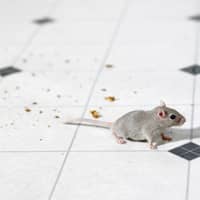Pests can damage your property and eat away at wood, insulation, sheetrock, wires, and even plaster. They can spread human pathogens, cause disease, and leave bacteria in their wake. Some pests also carry parasites, like lice--if they aren't already a parasite themselves. That's right, I'm looking at you bed bugs. So, what do you do? The first step is recognizing the signs of a pest infestation.
Termites. If termites got into your walls in fall and you missed it, they could be eating away at your equity as we speak. Termites do not hibernate. And, they can consume wood 24 hours a day, 7 days a week, 365 days a year. With over $2 billion attributed to termite damage every year, this is a pest you can't afford to miss. Look for mud tubes on your basement walls, and chew damage on wallpaper, railings, and other wood products inside the house--especially the attic.
Rats and mice. Rodents like to overwinter in homes. If they chose your home this year, there are some ways you can tell. You'll find their droppings in the back of your drawers and cabinets. You'll find chew marks on cardboard food boxes. And, if you're lucky, you'll hear them scratching and thumping in your walls.
Bed bugs. These are hitchhiking bugs. What makes them a pain in winter is the fact that you probably just spent the holiday season traveling. When you stay anywhere, no matter how nice, you can pick up bed bugs. Look for mosquito-like bites that appear in a row or cluster. Inspect mattress and box springs for black sticky fecal residue. Examine sheets for dried blood stains. And use a flashlight to search for these tiny brown bugs in your bed and on upholstered furniture.
Wasps. These stinging insects hide in eaves and attic spaces when the cold weather comes. An inspection of your attic crawl spaces will reveal nests. If you find a nest, have a professional come and remove it. Those wasps won't be dormant if you start poking their home.
Carpenter ants. Most carpenter ants survive the winter by burrowing their colony deep enough to be below the frost line. But if a carpenter ant colony has built a satellite colony in the wall voids of your home, they can be burrowing through your wood all winter. If they find a food source, you'll see them making a line to it. If you don't see this, look for exit holes and piles of sawdust.
The absolute best way to protect your home or business is to have year-round service from a pest control company you can trust. Look for one that has been around a while. When you have been in business for over 50 years, you learn some things. There is no reason you have to live with invasive pests. Get your home or business sealed.

